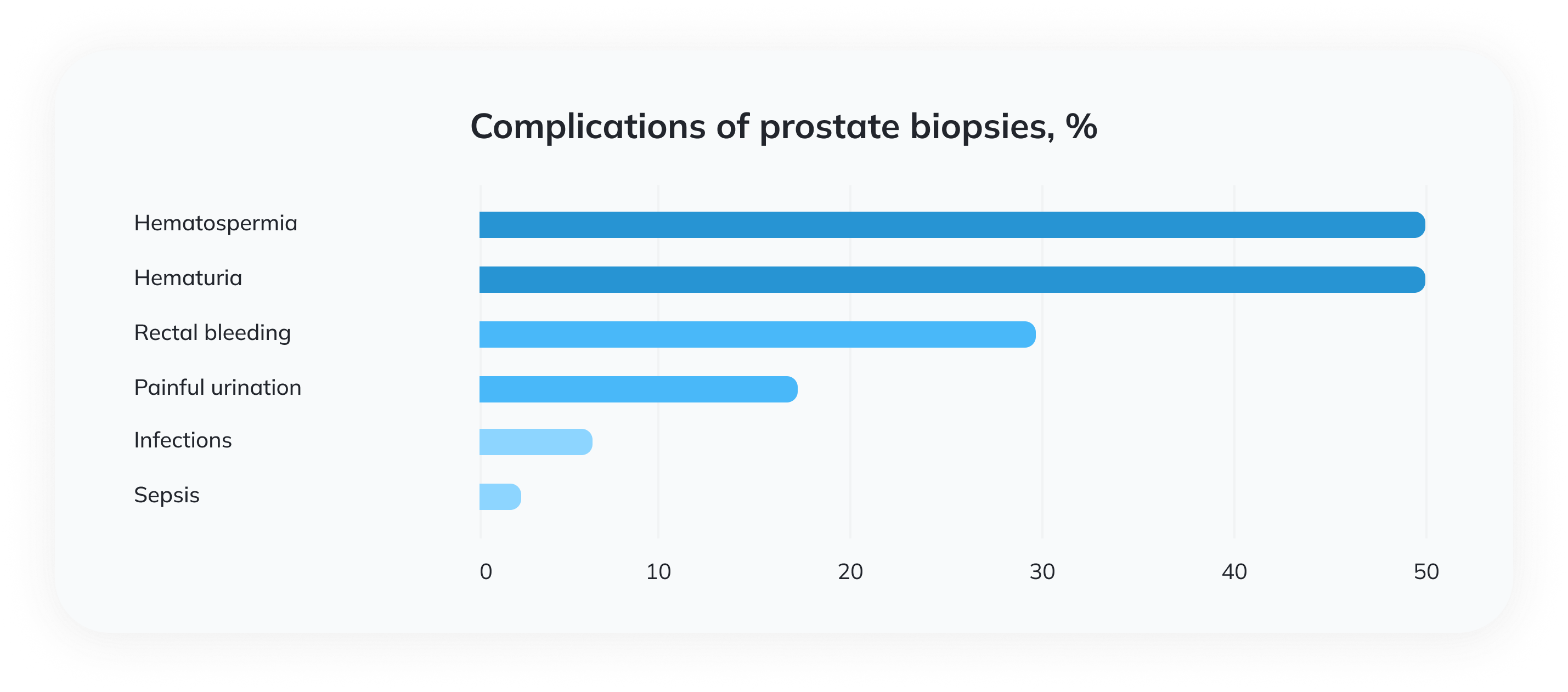A prostate biopsy is an invasive test that confirms the diagnosis of cancer when it is suspected. A biopsy is performed by taking small pieces of prostate tissue with special needles and examining them in a laboratory. Biopsy makes less than 1% of the prostate volume, so it is possible to miss cancer using this method.
In addition, the invasive biopsy procedure can cause complications such as infection (5-7%), sepsis (0.3-3.1%), hematuria (50%), and others (The journal of urology, v198, 2, 329-334, 2017). Urologists usually prescribe a biopsy when an increase in the blood serum PSA is detected. However, PSA may increase for many reasons unrelated to cancer, such as inflammation, physical activity, etc. For this reason, the biopsy results are often negative.

 Working hours
Working hours 